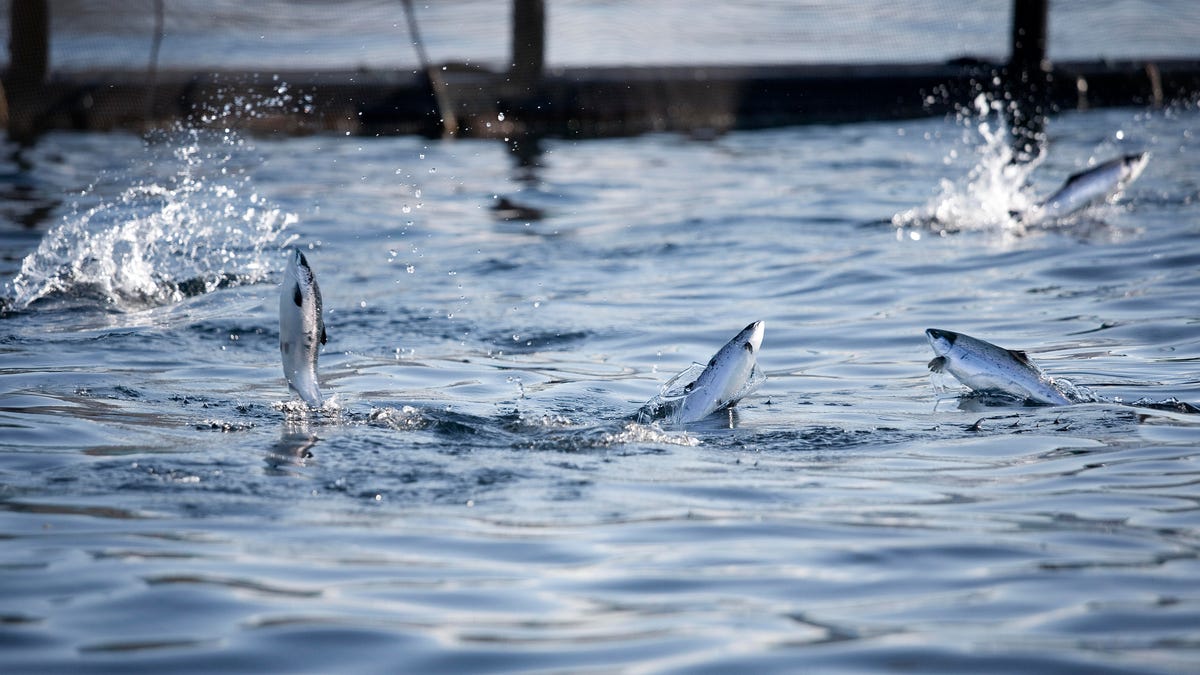Facial recognition for salmon is a thing now
It's also getting tested out on cows.

Farmed salmon in a pen.
Face scanning isn't just for humans anymore.
Norwegian fish farming giant Cermaq plans to roll out facial recognition technology at salmon farms that scan each fish's head for sea lice, Bloomberg Businessweek reported Monday. Each individual fish will reportedly have a medical record that's tracked over time.
The spread of sea lice in salmon farms is a big problem that could cost the global salmon industry $1 billion annually, according to Bloomberg Businessweek. Cermaq's system uses cameras enabled for 3D scanning, which can tell salmon apart by remembering the pattern of spots around the fish's eyes, mouth and gills. If the salmon has lice or skin disease, the infected fish will reportedly be separated and treated.
While farming industries may see facial recognition as a way to increase production, its use on people by law enforcement has raised privacy concerns. Some companies have also developed facial recognition technology for school security and airport security.
Cermaq is testing the fish facial recognition with Norwegian tech company BioSort. And Cermaq isn't the only farming company that's testing facial recognition technology. US agriculture giant Cargill is also trying out the tech on cows to adjust feeding components in order to increase milk production, according to Bloomberg Businessweek.
"The iFarm is a concept that we plan to develop depending we get the approval for the licenses needed," said Lise Bergan, corporate affairs director at Cermaq, in an email statement. "The development period will be 6 years. The initial tests we have been doing leave us optimistic, and we are hopeful that we will succeed in developing iFarm."
"We have completed 9 months of testing in a small pen with 2000 fish and proven that the principles work, but has also learned that it is not straight forward," said Geir Hauge, CEO of BioSort AS, in an email statement. "We plan to start a new test with 10.000 fish in November and in parallel we are preparing for tests in large commercial scale pens with 150-200.000 fish."
Cargill didn't immediately respond to requests for comment.
First published on Oct. 8, 10:19 a.m. PT.
Updates, Oct. 8, 12:45 p.m. PT: Adds Cermaq spokesperson and BioSort AS CEO Geir Hauge statements.

